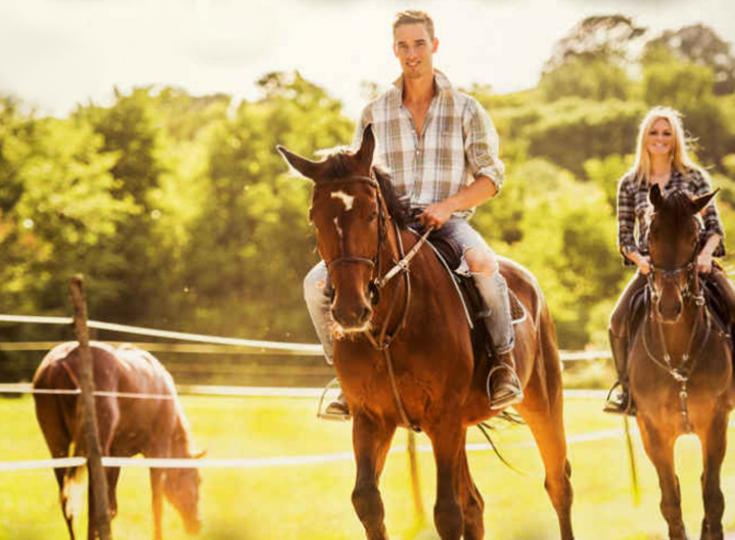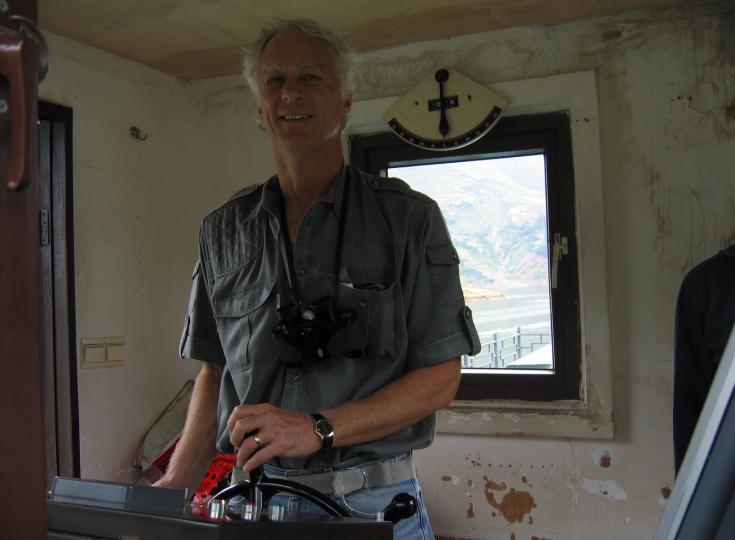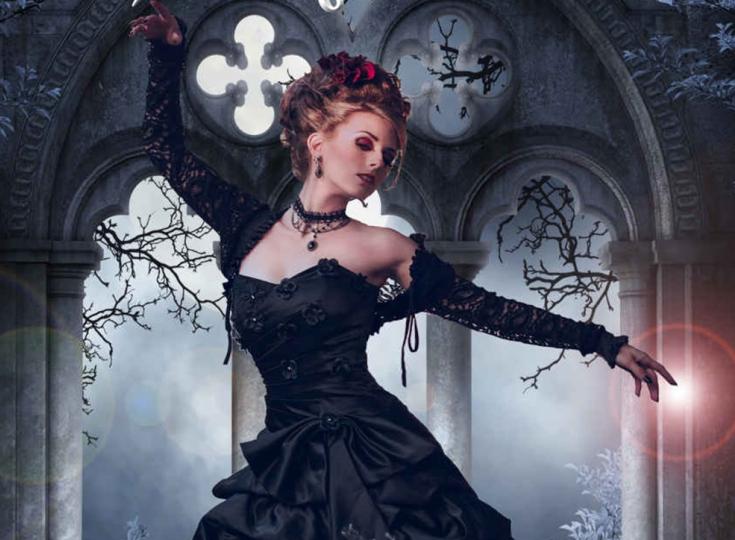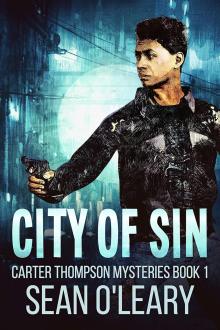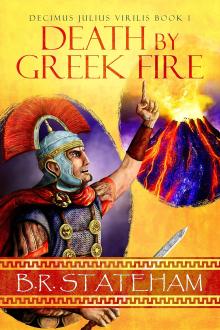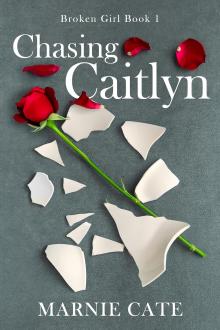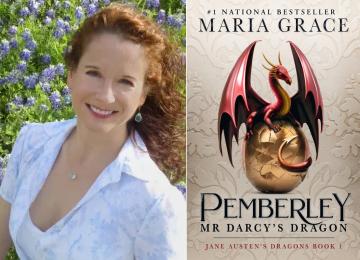Joe Klingler - Fascinated With How Technology Changes People
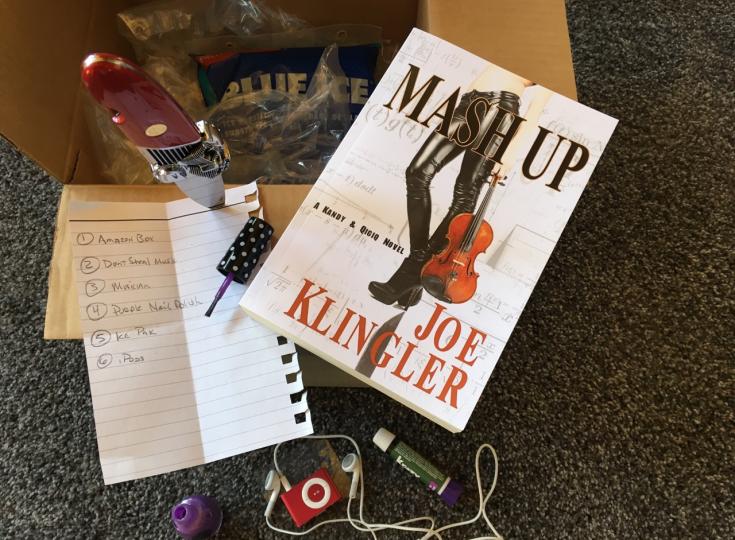
Many of Joe Klingler's thrillers are inspired by his passion for music and his fascination with technology and his latest release, Mash Up, is no exception. As our Author of the Day, Klingler reveals how this book was inspired by a Napster T-shirt, his views on online piracy and what he finds the most challenging about writing thrillers.
Give us a short summary of Mash Up.
Qigiq, a motorcycle-riding detective newly arrived in San Francisco from Fairbanks, partners with action-loving Kandy Dreeson to follow the cyber-trail of an exhibitionist killer in a classic noir thriller. A college musician doesn’t come home from a date with Mr. Mony. The Amazon box that arrives at her apartment freaks out her roommate, sending her straight to the police. A search ensues for the missing girl complicated by Internet postings, a teacher/student affair, and a Silicon Valley startup trying to make money selling music that decides to fight piracy with deadly consequences.
What inspired you to write this story?
A Napster T-shirt. The notion of perfect digital copies of entertainment is creating a new world order. We’re still in the eye of the storm.
Are any of the characters based on real people?
No. I’m inspired by certain characteristics of real people, but I don’t use any single person as a model. My characters are composites of dozens of people, and a large dash of just making things up as I go along.
What made you choose to have a detective who is out of his depth in regards to a high-tech crime investigating a cyber-crime case?
I thought it reflected the way many people relate to technology: it moves too fast, it has unintended consequences no one ever thought of, they feel left behind. This applies equally to law enforcement. I hope readers are able to identify with a guy only in his thirties who feels that his job is moving out from under him.
What is it that draws you to writing mysteries and thrillers?
Intensity and relevance. They can encompass every human emotion, intellectual action, and political conflict ever imagined. At the same time, they are immediately relevant to every day reality; and therefore, can provide insight into the decisions we are making as a society.
With affordable streaming services (such as iTunes) widely available, do you think people downloading copyrighted music is still a big issue?
Affordable for whom comes to mind. Artists derive very little income from streaming services, so whether or not these services are a long term solution remains to be seen. Witness The Life of Pablo album by Kanye West. Mr. West released it only on Tidal, a streaming service owned by artists. The album wasn’t initially available on other services. What happened? It rapidly became the most pirated album of 2016. So piracy hangs like a sword ready to cut off the hands of any attempt to put too much limitation on access to culture. So yes, I think piracy remains an issue. Any market innovation must be able to stand against it in order to survive.
Do you think eBooks face the same problems as music with regards to piracy?
Technically, yes. Practically, I’m less sure. The issue is time. I can listen to a thousand three-minute songs in 50 hours. At $0.99 per song, that’s nearly a grand. But in that same 50 hours, perhaps I could read ten novels. Even with a $10 eBook price (many are half that), that’s only $100. So the financial motivation is very different. And the personal time investment is very different. And perhaps, the relationship with the author is different than that with the large faceless record company. There is also the challenge that while musicians are able to perform live concerts to make a living, writers cannot. Many readers realize that very few authors are getting rich. Even some New York Times bestselling authors have day jobs. Hopefully, readers will be happy to purchase books to enable their favorite author to get that next book done. (And write a five-star review. Those help too.)
Which character did you enjoy writing the most and why?
They’re all fun, and each has many challenges. But Kandy Dreeson makes me laugh the most with her no nonsense approach to getting things done, and her low tolerance for rules.
Some parts of the book are quite graphic, was it hard to write these scenes?
I let the reader fill in the imagery more than some realize. I write: “a knife edge touches a finger,” and the reader fills in a whole lot of painful, queasy, graphic material with her imagination. These scenes are very hard to write because it is difficult to find that delicate balance of how much to show on the page, and what to keep in the wings. I want readers to understand deeply the kind of villain they are dealing with, so somehow the crime must be described.
Music plays a big role in this book. What are your favorite artists and do you listen to music while writing? Or do you prefer silence?
Robben Ford and Gary Moore on blues guitar. Anything by Mozart or Mendelssohn. Prokofiev. Brahms. I’m also a big fan of Philip Glass and film composers like Dario Marianelli and Ludovico Einaudi. I like ambient music by Liquid Mind, Brian Eno and a host of others. I generally listen to instrumental music while writing. Sometimes I play music that fits the energy of the particular scene I’m working on to help set the mood.
What is the most difficult aspect to writing thrillers and how do you overcome it personally?
Keeping the plot believable. Maintaining that beautiful “fictional dream,” so the reader is suspended in a sea of reality as they read, as if they are truly there. Any mistake that the reader catches pulls them out of this state. Research is required. Any character who acts in a way that hasn’t been properly set up pulls the reader out of the dream. At the same time, the plot has to be exciting, and intense, yet as if it could be happening in no other way. Add to this that each reader is unique and brings their own experience to the book, and a writer has a balancing act worthy of Cirque de Soleil. I approach this by having a group of first readers to whom I am very grateful. I write the best story I can. Then rewrite. Then I have the first reader read and comment. Then I rewrite. Then the second reader. Then rewrite. Then my professional editor. Rewrite. Finally a copy editor. Rewrite. At each step, the novel is polished and refined, errors are removed, scenes enhanced, story clarified. A writer who builds a group of skilled first readers, and listens carefully to them, is doing his or her writing a great favor.
In your book, a company creates a virus that publishes a name, photo and shaming confession of music pirates all over the web. How effective do you think would this way of public shaming be in stopping online piracy?
People carefully curate their online persona. Some wouldn’t care to be outed in this way. Others would try for the high score. Parents wouldn’t like children outed. And no one would want their files deleted. However, hackers would immediately work to defeat the system. In the book, Harold Zeto talks about staying one step ahead, the way anti-virus programs must be continually updated to fight new viruses. In the end, the company was trying to incrementally improve their sales. If they hassled enough people, they might have been successful long enough to IPO, cash out, and retire to the Bahamas. That’s something I hoped readers would think about: exactly what is this company doing, and aren’t they violating people worse than the file copiers?
What are you working on right now?
The next three books in the Qigiq and Dreeson detective series form a trilogy. It's a large project, but I’m working to release the first book this year.
Where can readers discover more of your work?
Please visit my website at www.joeklingler.com and sign up for The Klingler Kronicle. I update readers every 6-8 weeks with the latest news, and read all replies. Email is still the best way to have a conversation.
